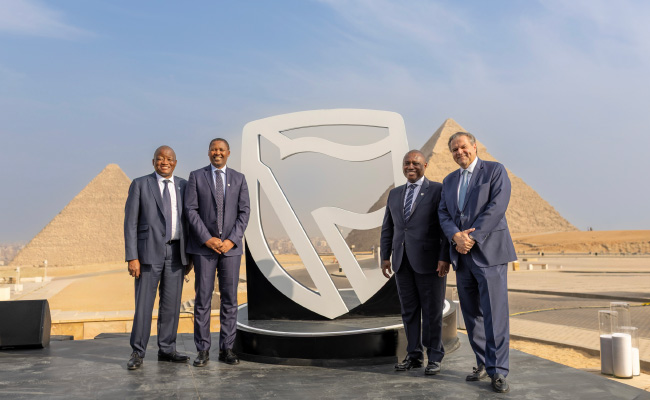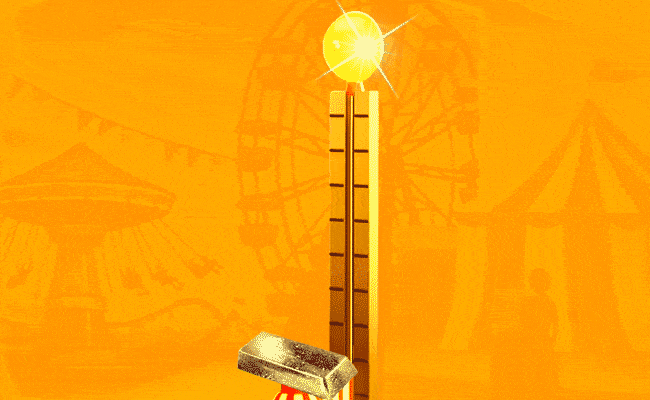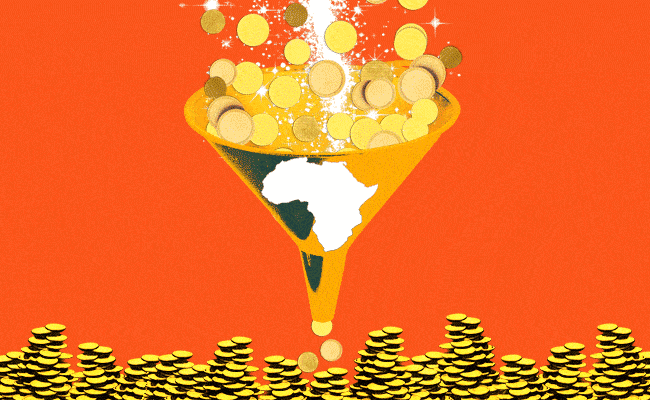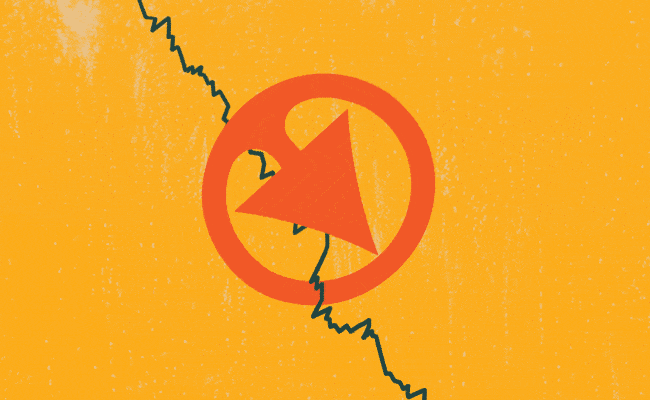South Africa’s largest companies expanding across the border are taking a big bet on where the next era of growth will come from – and the Middle East sits right in the middle.
Last week, Africa’s biggest bank set up shop in Egypt, marked by an event held at the Pyramids of Giza, signifying Standard Bank’s first foray into the region since it opened its Dubai office in 1997.
It’s a big strategic bet on Egypt’s role as a new trade hub, and on the region, says Lungisa Fuzile, the former National Treasury official who now heads the bank’s African arm.
“What we saw in recent years was how important the gulf region was becoming in terms of flows of capital to and from Africa, and for trade in different parts of the world. So we want to be part of that, and Egypt, which is on the rise, is a great stepping stone,” he tells Currency.
It’s a view that underscores a growing interest in the Middle East and North Africa from South African firms – a region that the World Bank estimates is set to grow by 3.6% next year, from 2.8% this year, considerably faster than South Africa’s 0.8% this year.
Egypt itself is expected to grow by more than 4.4% this year, sparking investor interest. Last year, according to consultancy PwC, there was a 23.7% growth in acquisitions in the country, which was the highest in the region.
In 2022, mobile operator Vodacom bought 55% of Vodafone Egypt for R41bn, while SweepSouth, the home cleaning operation owned by Naspers, bought Egyptian start-up FilKhedma in 2021. In the region, life insurer Sanlam bought into Saham in Morocco, and Mediclinic owns six hospitals and a day clinic in Dubai and Abu Dhabi.
The JSE’s Leila Fourie tells Currency that relations between South Africa and the Middle East have opened up dramatically – a shift that will have gained ground since trade relations between Donald Trump’s White House and the rest of the world were upended through tariffs. “There has been a material interest from Europe and places like Saudi Arabia, so the perception of risk has started to shift,” Fourie says.
Standard Bank is the first South African bank to step into Egypt, however, and Fuzile says it will initially focus on trade finance and investment banking, rather than a fully-fledged retail bank. But he doesn’t rule that out, if all goes well.
“We like to start small, get the lay of the land and a feel for the regulatory environment, understand the culture better, and then look to grow from there,” he says. “It’s the same approach we adopted in Côte d’Ivoire where we evolved from a representative office to full banking licence over the course of a few years.”
Africa is a continent
It might be small, but this deal is significant for what it says about Standard Bank’s strategy.
Back in 2006, it bought BankBoston in Argentina for about $160m from Bank of America in a curious deal geographically, at about the same time as it bought 67% of Dundas Ünlü Securities in Turkey, and 33% of Russia’s older brokerage Troika Dialog.
This seemed a confused and opportunistic strategy – running a bank 8,000km away can’t be easy – so it was no surprise when it sold all three and said it would focus again on Africa.
Egypt, at least, fits neatly into that.
“This fits much better with our DNA, which is about being part of the African story,” says Fuzile. “I was in the US last month, and was talking about Standard Bank’s presence in Africa, and this Egyptian guy said to me: ‘Hey, why don’t you count Egypt as part of Africa?’ So I said we absolutely do, and we’re opening there within weeks.”
Fuzile says the bank learnt plenty of lessons from its foray into Argentina and elsewhere.
“Something we learnt, for instance, is that while growth is obviously good, too much growth in different directions can stretch you too thin, and then you might not know where you’re bleeding. So you’ll see an abundance of caution with how we do things today. Also, we rely far more on local talent and expertise than we used to,” he says.
The Egypt business, like all its banks across the continent, will have to meet pretty strict financial hurdles: a return that will have to be six percentage points above its cost of equity.
Egypt might be on the up now, but that doesn’t mean the region is a slam dunk. Just ask mobile operator MTN, whose initial pan-African strategy brought enviable returns – until it didn’t.
In recent years, MTN has faced a swelling number of court cases thanks to its high-risk decisions to leap into countries like Iran, Syria, Afghanistan and Yemen. In particular, MTN is now the subject of a grand jury investigation in the US over claims made in 2019 that it provided “material support to known terrorist organisations”, which led to American soldiers being killed.
It was little wonder that in 2020, MTN’s then CEO Rob Shuter said it would quit the Middle East and “rather focus our energies in our core African markets that are closer to home”.
Fuzile concedes that politics in the Middle East can be fraught. And it’s not just Israel and its neighbours; the 2008 Arab Spring saw Egypt itself depose president Hosni Mubarak.
“Look, we take a long-term view, and in any country elections can lead to volatility,” he says. “In that region, the Arab Spring came and passed, and different countries use it in different ways. It all depends on whether countries use these moments to affirm their institutions work, and their democracy is durable. And that’s where we see Egypt today.”
Fuzile says the time to capitalise on stronger relationships between African countries is now, as Trump’s administration “reset its trade relations with the rest of the world in unimaginable ways”. Nonetheless, he says free trade remains the goal to strive for.
“Trade is global, and anyone advocating for building a wall around themselves won’t succeed over the longer term. Will there by temporary scars from what we’re going through now? Absolutely. But will global trade die? Not a chance.”
Top image: supplied.
Sign up to Currency’s weekly newsletters to receive your own bulletin of weekday news and weekend treats. Register here.












